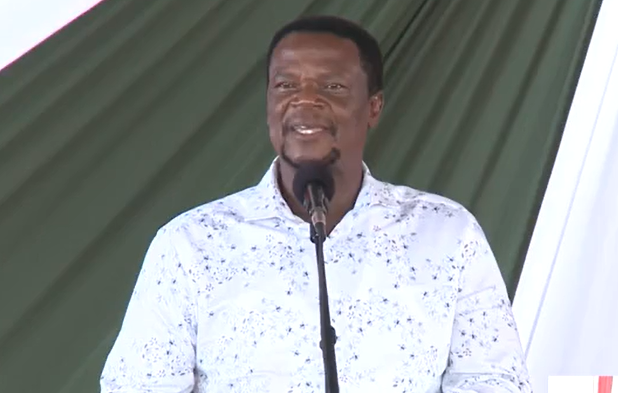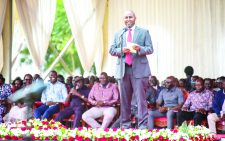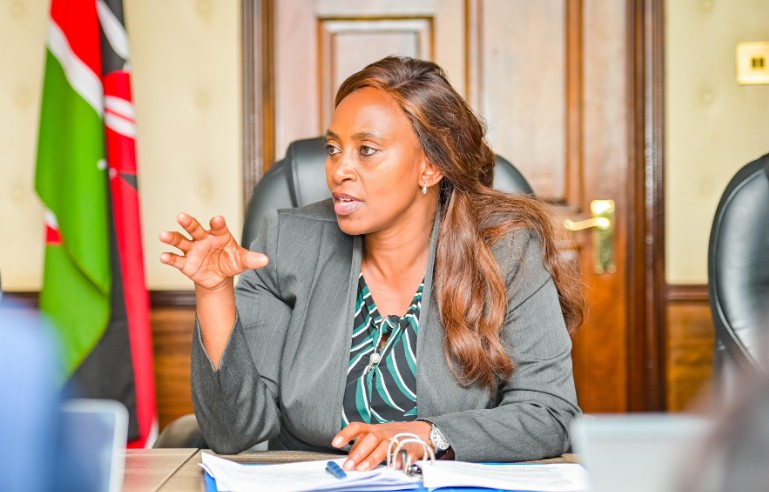Experts warn of skirmishes in 2027 over IEBC

The country is at a risk of witnessing a repeat of the aftermath of the 2007 elections in 2027 following delays in reconstituting the Independent Electoral and Boundaries Commission (IEBC) and enacting requisite electoral reforms.
During the People Dialogue Festival at Uhuru Park, the participants raised concerns that the electoral sector is ill prepared to conduct credible elections two and a half years before the polls.
In responses, experts agreed with the sentiments, emphasizing that it is already late to reconstitute a fresh team of IEBC commissioners given the high stake attached to Kenyan elections.
IEBC midterm
“We are late. We are now reconstituting IEBC mid-term. We are exactly two and a half years to the general elections. We have done two and a half years. It’s a mid-cycle, and yet the substantive commission is not been put in place,” Electoral Law and Governance Institute for Africa (ELGIA) Executive Director Felix Owuor said.
Owuor further stated that the majority of the electoral reforms anchored in the bills that emanated from the National Dialogue Committee (Nadco) report in 2023 might not be actualized within the 18-month deadline before 2027 elections.
“Whereas Parliament, and thanks to the Justice Committee of both houses, have expedited the legislations, except the IEBC Amendment Act, all the nine NADCO bills are yet to be fully passed. And so whether we will be able to meet the 18-month deadline is something that we need to consider,” he added.
The Elections Amendment Bill, Political Parties Amendment Bill, Election Offences Amendment Bill, and Statutory Instruments Amendment Bill are in the National Assembly.
Amendment Bill
The National Assembly has passed the IEBC Amendment Bill while two other bills that proposed the establishment of the position of Prime Minister and Leader of the Opposition were deferred as they needed amendment in the Constitution.
Consequently, Owuor warned that the 2027 elections has comparable risks with 2007 polls over the quagmire shrouding the electoral sector, which might undermine the management of results and worsened by reckless utterances by politicians.
“What do you expect to have when the political elite have already declared that in 2027, they will win at all costs, even if it means stuffing the ballot?” he posed.
He pointed out that there is an urgent need to fix the integrity of the election, which includes counting, tabulation, transmission, and declaration of results.
“In 2022, the two functionalities of the Kenya Integrated Electoral Management Systems (KIEMS) kit were never done. That is the electronic tabulation of transmission of results. We uploaded the form 34 in the portal, but we did not electronically transmit,” Owuor explained.
“That is why the results took six days out of the seven because there was no electronic transmission. Electronic transmission is expected to tabulate results in real time, so it was never there in 2022. And the other feature of Kim’s that was never activated was the results display system.”
Owuor added: “If we don’t consolidate our elections in 2027, then my fear is, given the similarities and risks that are very similar between 2007 and 2027, then the country may go in a very bad way.”
The ELGIA boss cautioned the political class against the constant attacks directed to the judiciary, emphasizing that such moves may plunge the country into chaos in case the 2027 general elections are disputed.
“The current orchestrated attacks on the judiciary and the Supreme Court in particular is something that has all the risks and the potential for bleeding this country into anarchy. The judiciary remains our strongest pillar in realizing electoral reforms and also in defence of the electoral democracy in this country,” he said.










